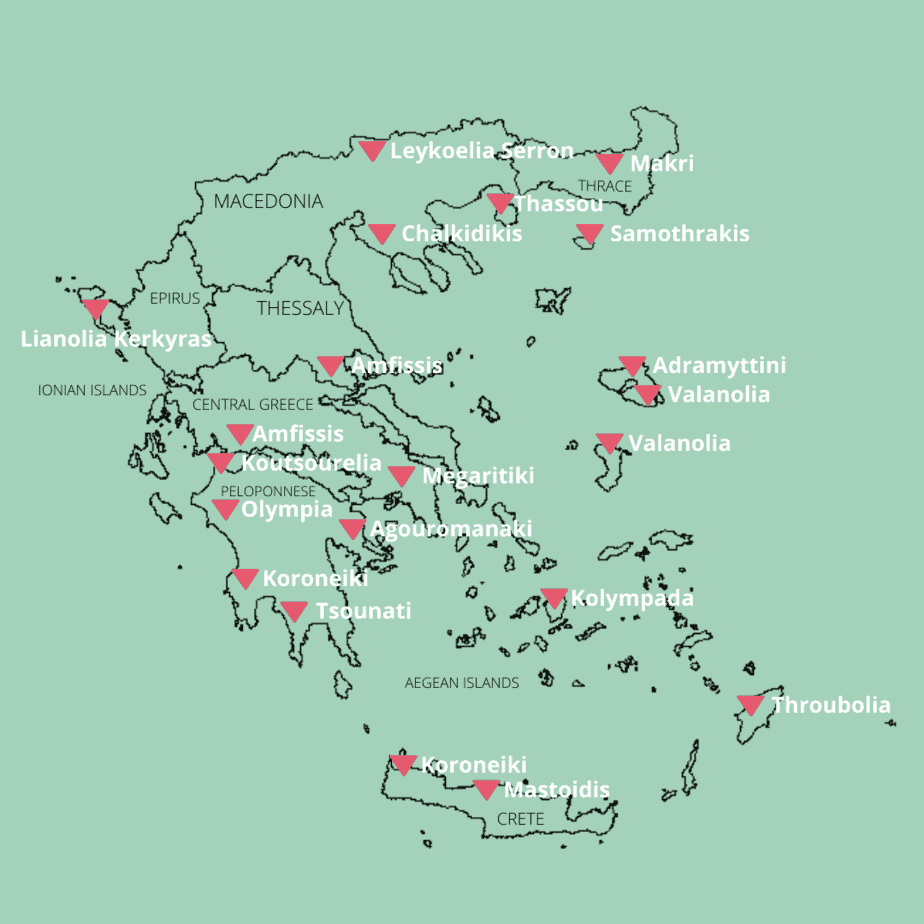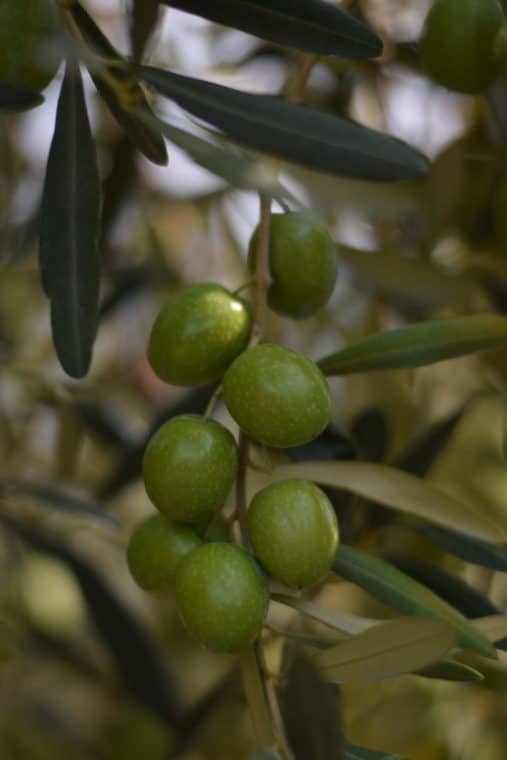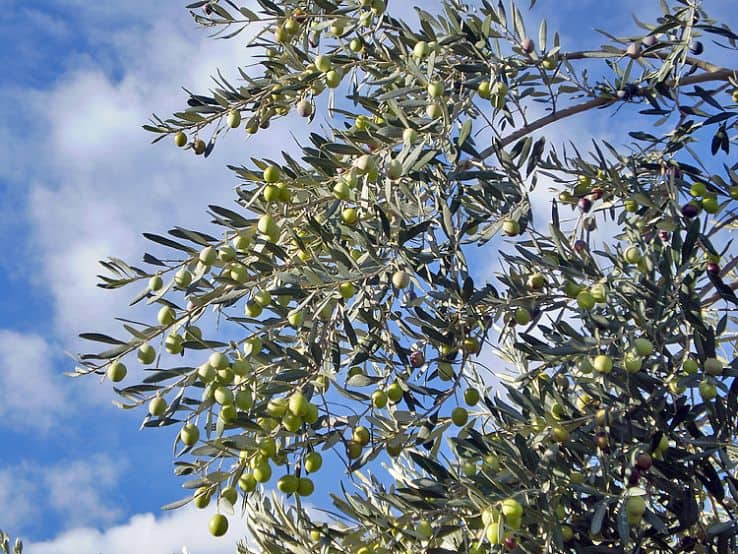Greek Olive Oil:
What Makes it Special?
Greek Olive Oil Represents Only 3% of the Worldwide Market Share, Yet Many Consumers Say They Wouldn’t Replace It With Any Other.
What Makes It Special?
See How Tradition and Science Combine to
Create the Wonderful Olive Oil of Greece.
Lazy? Quick Read.
Key Takeaways on Greek Olive Oil
1. Greeks produce olive oil since the Neolithic Era. The olive tree is most appreciated by both ancient and modern Greeks.
2. Greece is the third largest producer of olive oil. Despite this, only 3% of olive oil in international markets is Greek.
3. This happens due to increased domestic consumption and low-value in bulk exports, mainly to Italy where it is re-exported through Italian brands.
4. Despite the obstacles, a new generation of Greek producers create high quality olive oil thanks to continuous training combined with eon-long tradition in olive oil extraction.
5. Greek olive oil brands are the best choice for a consistent supply of a transparent, earth-friendly, high quality, high value-for-money product.

Author: Athanasios Demeslis
Founder of Myrolion
This article has been meticulously written by Athanasios to help answer your questions on olive oil from Greece.
Years of personal experience with olive tree cultivation and olive oil extraction have been combined with daily studying on EVOO to help you nurture yourself and your loved ones in the best way possible.
Greece Has Her Roots Deep in the Olive Tree
The olive tree is a core feature of the Greek culture. It is the reason Athens is named Athens and it fuels Greeks with hope even today.
This tree is extremely resilient and thrifty.
It can go months without water. It can sprout all the way from seaside cliffs to near-alpine mountains. A single olive tree can live for more than 2,000 years by continuously generating new branches and foliage.
In the same time, the olive tree could not care less about the market’s pace. It takes its sweet time turning nutrients from the soil and energy from the sun into olive fruit that is filled with intense flavor and health promoting properties.
Its cultivation is one of the most humbling and scientific experiences a person can have.
On the one hand, the tiniest intervention can greatly affect the resulting yield and quality. On the other hand, a slight unexpected increase of temperature or the presence of rain or wind during crucial periods can disrupt the year’s yield.
It is evident now that cultures are born from the type of experiences a society has with nature.
Since hundreds of thousands of families in Greece are directly dependent on the olive tree, it is no wonder why Greeks demonstrate resilience and resourcefulness through the eons. No wonder why they take their sweet time doing anything, as well.
The Olive Tree in Ancient Greece
The importance of olive fruit and olive oil in ancient Greece is evident. After all, olive oil is the best fat source ancient inhabitants of Greece could ask for.Athens Took Its Name Thanks to an Olive Tree
Way back when, Athens was only a newborn city. Athena and Poseidon could see that this would become one of the greatest cities of all time and were competing over the city’s favor and protection.
The two gods, along with Zeus, the other gods and Cecrops, the founder and king of the city, climbed on the Acropolis.
Both gods would make a gift to the newborn city. The greatest gift would determine which god would eventually become the city’s guardian.
Poseidon went first. He struck the ground with his trident and sparkling sea water started pouring out of the earth. Athena, on the other hand, humbly planted an olive tree, which quickly sprouted, bloomed and became fruitful with round, shinny olives!
Cecrops, looking at the surrounding area from the Acropolis, could see more than enough sea. However, he figured that the olive tree could provide the newborn city with luscious, healthy food and wood for the cold winter nights.
Athena won the contest unanimously. She became the city’s guardian. The residents named the city after her, Athens, as a sign of gratefulness and honor.
This myth clarifies that to the eyes of Greeks back then, the olive tree was so crucial for their well-being that it could only be a gift from the gods.


Cecrops – The mythical founder and first king of Athens
Greeks Make Olive Oil Since the Neolithic Era
Around the time that Athens was founded, a small community in Methana, Peloponnese was already bearing the fruit of olive oil extraction.
During the Neolithic Era, residents of Methana would use a stone tub which had a slightly tilted bottom and was connected to a jar.
The neolithic inhabitants of Methana probably filled the tub with olives and directly pressed on them with their feet, strongly resembling traditional grape pressing.
The olive oil was then transferred to the jar thanks to gravity.
It is possible that back then the resulting liquid would more closely resemble olive juice, instead of olive oil. This means that they had not discovered a technique to separate olive oil from water, so it would be something similar to modern fruit juices. Of course, this would lead olive oil to quickly degrade.
Numerous rectangular and cylindrical stone tubs were also found in Minoan Crete, dating back to the early Neopalatial era (1750 – 1700 BCE). The same chronological pattern can be seen in Cyprus and Syria too.

Stone tub for the pressing of olives.
The Olive Tree in Modern Greek Literature
Odysseus Elytis, a major exponent of romantic modernism in Greece who won a Nobel Prize in Literature in 1979, put it like this;
“If you deconstruct Greece you will end up with an olive tree, a grapevine and a boat. With these, you can rebuild it again.”

The Greek Olive Oil Model Today
As suggested by the last poem, it is evident that olive cultivation is deeply connected with the rural, usually low-income, Greece.
There are approximately 750,000,000 olive trees in the world today. About 170,000,000 of them are cultivated in Greece.
About 81% of olive trees in Greece are used for the production of olive oil and the rest are harvested for table olives.
Every year, approximately 300,000 tons of Greek olive oil are produced. The majority of this olive oil is classified as extra virgin by chemical and sensory standards.
About 75% of Greek olive oil is produced in Crete and southern Peloponnese, however there is great sensory diversity thanks to olive oils produced in other areas of Greece, like Magnesia.
Greek Olive Oil is Produced by Small Olive Farms
In contrast to Spanish and Italian olive oil, Greek EVOO is mostly produced by small, family farms. More than half the olive farms in Greece have a size of less than 5 hectares.
Also, these small farms typically sell their olive oil in bulk to merchants and distributors. Since a typical family of olive oil producers has a small amount of trees and olive oil, they are not capable to market it themselves.
Another problem that derives from this model is that due to the very small size of the farms, it is possible that some producers may lack funds and technical know-how to fortify quality control and assurance.
Despite these restricting factors, approximately 55%-80% of Greek olive oil is extra virgin.
The resulting quality is a sign of the actual care every Greek producer gives to their olive trees and the resulting EVOO. Additionally, we owe a lot to the Greek land itself.

Climate and Terrain Benefit the Quality of Greek Olive Oil
Olive oil quality is directly related to the following environmental factors:
-
Olive Trees Love the Mediterranean Climate
It is well-known that the olive tree thrives in the dry summer climate zone. Greece, being in the heart of the Mediterranean, offers near-perfect conditions for olive trees to thrive and offer luscious, healthful extra virgin olive oil.
-
Lower Percipitation Boosts Polyphenols
Olive oil polyphenols benefit health in many ways. Apparently, these natural antioxidants are a response of the olive tree against high-stress situations. Lack of water is such a circumstance.
During the Greek, dry, summer olive fruit get pumped with polyphenols that are then included in the olive oil. This is why quite a few Greek EVOO brands, including Myrolion, bear a health claim for their high concentration of phenolic compounds. -
Intense Terrain Elevation Boosts Greek EVOO Quality
Greece and Italy are known for the intense diversity of their terrain. Mountains, seas, hills and plains all co-exist in very short distances, creating a highly diverse environment.
The olive trees love that and as a result reward us with increased quality olive oils. High elevation, inclined terrain and the co-existence with numerous plant species boost the quality of the resulting oil.
Greek Olive Cultivars
Greece is a very diverse place.
Crete rarely sees any snow, while Chalkidiki is facing 0°C temperatures almost every winter. Near Amfissa you can find large plains filled with olive trees, while around Volos you can see the olive trees climbing Mount Pelion, or even push their roots in the sea water in Kastelorizo.
The great diversity of the Greek land has pushed the olive tree to adapt to all these circumstances.
As a result many cultivars exist in Greece today. Each variety creates its own fruit, with special shape, taste and produced olive oil.
You might’ve heard of the well-known Kalamata olives and the Koroneiki olive variety and of course who doesn’t know about Cretan olive oil? However, there is so much more beyond the classics!
Depending on their features, some cultivars are exclusively used either for the production of olive oil or as table olives. Some, like our local Amfissis (or Voliotiki), provide great quality olives and olive oil.
In the following map you will see the most popular Greek olive cultivars used for olive oil and where they are mostly cultivated.

Here are a few details about the most popular olive cultivars in Greece:
Koroneiki
It is the most popular Greek cultivar. While it originated in south Peloponnese, it is now cultivated throughout the world.
There is a very high chance that the Greek olive oil you buy from your local grocery store comes from this cultivar.
Koroneiki olive oil is typically of intense pungency and bitterness, due to a strong phenolic profile, however it can lack in aroma.
Greek olive oil producers love this cultivar because it has a high olive oil yield and is extremely resilient to high-temperature / dry climates. It also has increased resilience to numerous diseases.
A koroneiki olive tree is typically small and can reach a height of approximately 5-7 meters.

Amfissis
Our olive grove is exclusively filled with this impressive cultivar. Myrolion is 100% monovarietal with Amfissis.
Amfissis is the dominant olive variety in central Greece. You will find it thriving in the plains below Delphi, all the way to the mountain of Centaurs, Pelion.
In the past years olive fruit from this cultivar have been exclusively used for the production of table olives, thanks to the fruit’s enormous size. Magnesia’s Amfissis table olives even have a PDO designation (Protected Designation of Origin).
Amfissa olive fruit is among the biggest and has a distinctive, near-spherical shape.
This cultivar produces very balanced olive oil, with distinctive pungency, bitterness and great, intense aromas and flavor.
In contrast to numerous cultivars out there, it does not overpower the taste of other ingredients, but enriches it.
In the same time, Amfissis olive oil has a strong phenolic profile that provides certified health benefits, according to EU Regulation 432/2012.
Amfissis olive trees grow tall, up to 10 meters, and are very resilient against low temperatures.

Manaki
This olive cultivar can be found in central and western Greece. It is adapted to the intense elevation diversity of these areas and can thrive in elevations that other cultivars cannot. Also, it is highly resilient against wind and low temperatures. Manaki olive fruit ripens slowly and has a late harvesting period, typically around January or even February. This olive fruit is mid-sized and has an oval shape. Its sensory profile can be even characterized as “sweet”. It has a generally weak phenolic profile, which translates to mild bitterness and pungency.
Megaritiki
This olive cultivar can be found in central and is local to the ancient city of Megara, near Athens. Megaritiki trees are highly resilient to low-temperatures and dry weather too. Megaritiki olive fruit has a very high olive oil yield, at approximately 30%-35%. This olive fruit is mid-sized and looks a lot like a “big Koroneiki”. Its sensory profile is mild. It has a weak phenolic profile, which translates to low bitterness and pungency.
Distribution is Lacking
Greek olive oil cannot find its way to the world’s markets. Only 3% of olive oil brands worldwide are Greek. Why does that happen?
In the birthplace of the Mediterranean Diet, people consume big quantities of extra virgin oil. It is the main source of fat for Greeks, or at least it was before our culture and eating habits slid towards the modern way of life.
Having realized the health benefits of olive oil, the average Greek consumes approximately 16 kilograms of olive oil per year. Compare that to 0.5 kilograms for the average Englishman or American.
Greeks use olive oil for salad dressings, especially on the popular Greek salad, cooking and even deep frying. After all, olive oil is found to be the healthiest option to cook with, especially when compared to other vegetable oils.
As a result, approximately 58% of Greek olive oil is distributed within Greece.
In addition, the interaction between the Greek and Italian olive oil models further handicaps Greek EVOO’s market share.
Over the past decades, large Italian olive oil companies have developed a strong brand name and extensive distribution networks throughout the world, which led to an enormous market share for Italian brands.
Because Italians consume more olive oil than Italy produces, Italian companies needed to import large quantities of olive oil from Greece and other countries, which didn’t have strong brand names or extensive distribution networks.
It is common practice for Italian olive oil manufacturing companies to import bulk olive oil from different origins, qualities and specifications and then blend them to produce a branded product which is then re-exported as “Italian olive oil” to international markets for final consumption.
42% of Greek olive oil is exported. Approximately 69% of it is exported in bulk to Italy.
The combination of these factors explains the low market share of Greek olive oil in international markets.
When Greek Producers Do It Right
Earlier we saw that while the Greek land, climate and olive cultivars can contribute to creating the world’s best olive oil, there are many obstacles related to social and financial factors.
But what happens when some families power through these obstacles?
A small yet crucial number of Greek olive oil producers are now capable to bring Greek olive oil to the next level.
High Expertise is Now Possible
In the past decade more and more producers saw olive oil prices plummet to the point it was not profitable to sell their olive oil to established distribution networks.
This happens because there is a very high dependency on the Italian olive oil industry and in the same time this industry is supplied by new players like Turkey, Tunisia, Spain and Portugal.
As a result, many producers decided to market their olive oil themselves, locally or abroad, despite their low capabilities.
To enter new markets they had to address elevated needs, in terms of quality. So, they started transitioning to cold extraction, to create high quality olive oil.
Thankfully, every year hundreds of producers receive exceptional training from relevant organizations both in Greece and abroad.
Olive oil production is now not a tradition, but a scientific process.
The Greek Crisis as a Motive
Our family does not have the typical, overly marketed, olive cultivation history. Even though my grandfather was an olive oil producer, my parents did not follow the same path.
Greece had significant growth during the 80s’ and 90s’. Like many people, my parents were able to go after higher-incomes, in office-related jobs in the big cities of Greece.
When the notorious Greek crisis hit us, approximately in 2012, our long-abandoned olive orchard was the only thing that could keep us standing.
We had to re-discover and re-invent everything from scratch. It took us more than five years to be confident and consistent.
Just like us, a new generation of olive farmers was created during the Greek crisis. Since olive farming was actually needed to survive and not a hobby, there was a very high motive to increase our expertise.
Our lack of experience was also a blessing that allowed us to see and do things differently than the local, traditional olive farmers that were and are led to poverty, because they follow a failing model.
Sustainable Practices
This small, yet growing, number of olive farmers has high environmental sensitivity.
Climate crisis has arrived at our doorstep. We experience disruption of cultivation due to the highly volatile weather of the recent years.
As a result, we have stopped seeing our land as an olive farm. We now treat it as an olive forest, where a plethora of species are allowed to thrive.
Think of it in a simple way; when buying sustainable olive oil you have taken a tiny step of regenerating the Earth.
Our olive forest plays a very active role against the climate crisis thanks to its increased capacity of absorbing carbon dioxide from the atmosphere.

Olive Grove in Greece During the Spring.
Olive Oil Producer – Researcher Synergy
Greek producers have been in contact with researchers to further increase the potential of Greek olive oil.
The World Olive Center for Health has been consistently collaborating with producers, including our family, to unlock the secrets of olive oil polyphenols and further realize the health benefits of high polyphenol olive oil.
Additionally, every year it rewards producers who are capable of following the needed practices and eventually extract olive oil with high phenolic content. This happens through the Olympia Awards for Health & Nutrition. During this event, researchers from all around the world, including Harvard and UC Davis, come to educate Greek olive oil producers first hand.
This great synergy provides producers with deep knowledge and expertise. More importantly, it creates a scientific framework for olive oil producers to act on.


